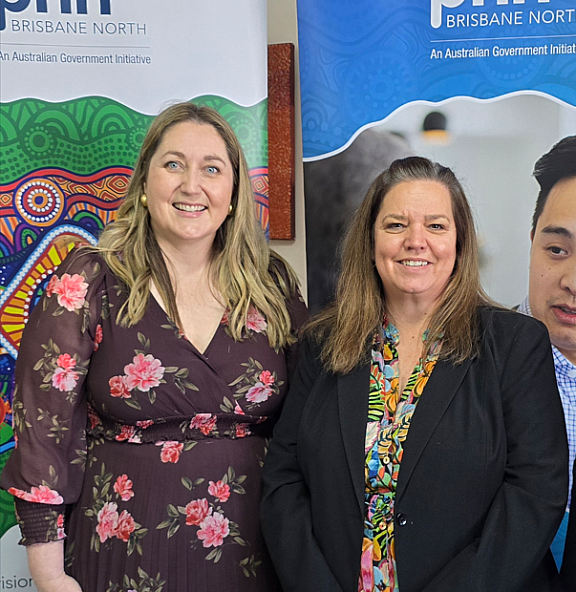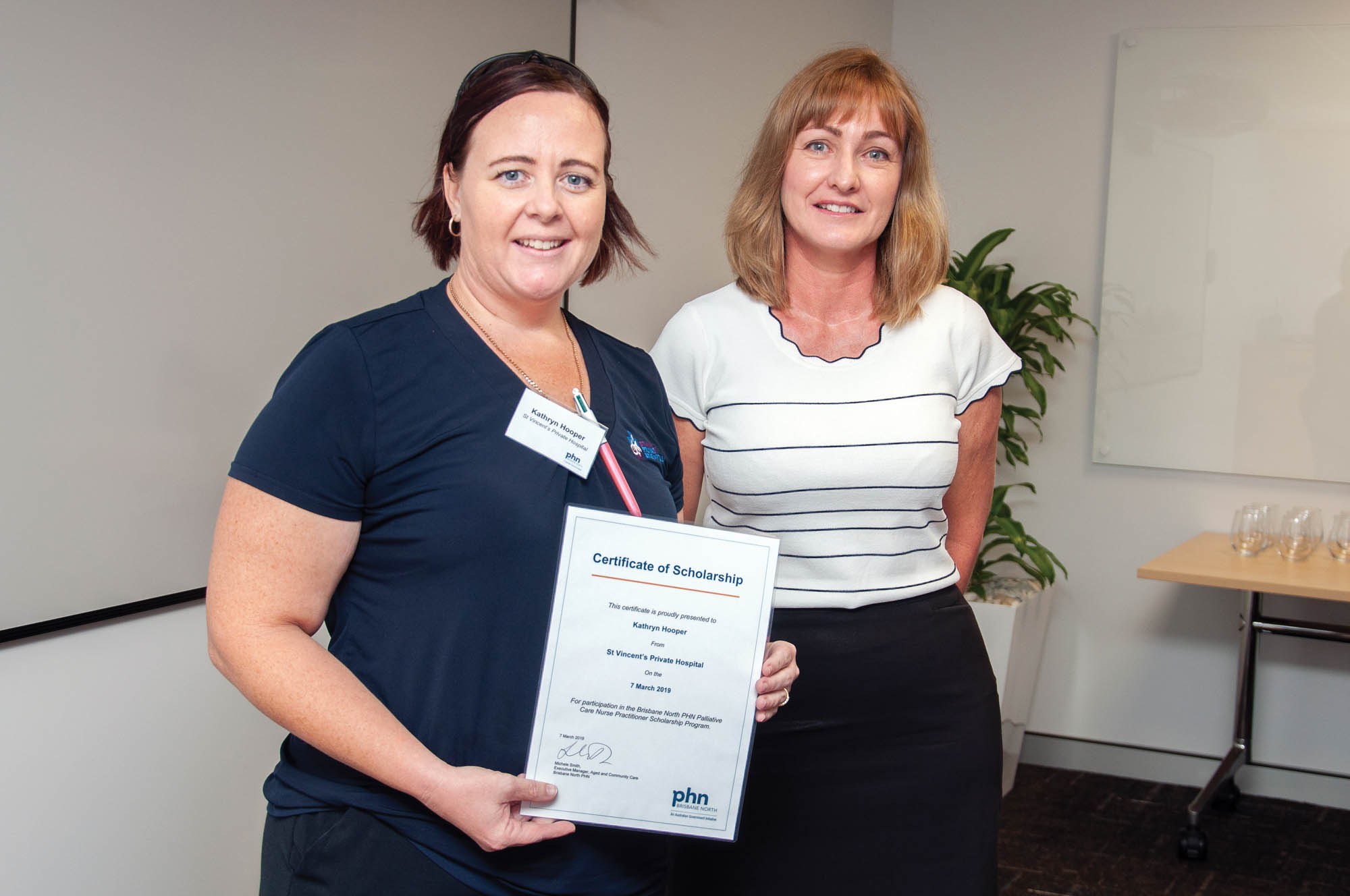
Announced: North Brisbane and Moreton Bay Medicare Mental Health Centres opening from July
Mar 27, 2025
Aug 16, 2019

Worimi woman Kathryn Hooper is passionate about culturally appropriate palliative care for Aboriginal and Torres Strait Islander people and says those with terminal conditions should have the option to die on country whenever possible.
Kathryn was awarded a Brisbane North PHN scholarship earlier this year and, on completion of her studies, will be the first Indigenous Australian Palliative Care Nurse Practitioner in Queensland.
Palliative Care Nurse Practitioners possess highly advanced nursing skills and provide support to patients with complex palliative care needs.
Kathryn currently works at St Vincent’s Hospital in Brisbane within the specialist community palliative care team. She has also worked at Karuna Hospice for many years as a Clinical Nurse (CN) and a CN/Educator within the aged care and public health sectors.
She said the nurse practitioner role was an opportunity to break down silos and link services.
“So you might have a specialist, you might have a specialist palliative care organisation. You might have lots of other resources within the community, but everyone is looking at their own specific role,” Kathryn said.
“So I think where the nurse practitioner role can come into it is really linking those [roles] together to get coordination of care, that continuum of care.
“We can actually bring healthcare back into the community and hopefully try and minimise some of those presentations to emergencies…they’re really quite high, especially in palliative care,” she said.
Kathryn has equally high aspirations for Aboriginal and Torres Strait Islander peoples.
“My particular family is from the Port Stephens area [of Northern NSW],” Kathryn said, reflecting on her Woromi heritage.
“My Great Grandfather was born on the riverbanks and so it’s really beautiful being able to identify with that culture,” she said.
But Kathryn said there are barriers preventing Indigenous Australians from accessing culturally appropriate palliative care.
“There are lots of deficits in that area, so being able to really link in [would help with] getting our people to die in home country,” she said.
“And if they can’t die in home country, you know, I’ve been speaking with the Elders just recently and talking to them about some of their stories and yarning with them about what’s important to them.
“[They say] if they can’t make it to country, because there’s a lot of cost involved with that, even [solutions] just as simple as having a facility that points in the right direction [would help].
“Or a room or a bed for instance that points in the right direction for country so that, when our end stages of disease take over, their spirit can actually be guided back to home country and it’s already pointing in the right direction,” she added.
Kathryn is also concerned about “pluralism” in some healthcare documentation designed to support professionals who work with Indigenous communities. By way of example, she notes the advice often given that Indigenous people do not like eye contact.
“So sometimes those things can form barriers between healthcare professionals and Indigenous people. [But] that’s a very patient-centred specific thing,” Kathryn said.
“So it’s not just assuming that not every single Indigenous person for instance doesn’t like eye contact but again, sitting down and yarning with them and listening…and allowing them to tell you their story, so that when you do provide care for them that it’s based on them specifically and not that pluralism,” she explained.
Had the PHN scholarship not been available, Kathryn said completing her studies would have been a lot more difficult.
“I think this particular scholarship is amazing, in the sense of what PHN actually offers, and it wasn’t…so much the money side of things,” Kathryn said.
“When I found out that it was PHN, knowing that such an organisation, especially one that was in our local community, [had] all the facts and the knowledge and that ability to offer us some extra additional support, I think was the most important thing,” she said.
To support the broader palliative care workforce, Brisbane North PHN has also offered a number of scholarships for graduate certificate level qualifications to eligible nurses.
The longer-term goal of the scholarship program is to build a network of palliative care nurse practitioners across acute, community, aged and primary care with more effective and accessible services.
The program also aims to improve communication between services and provide better support to patients navigating the system.
Photo: Kathryn Hooper in March 2019 receiving her Palliative Care Nurse Practitioner scholarship from Brisbane North PHN’s Executive Manager for Aged and Community Care programs Michele Smith.

We acknowledge the Traditional Custodians within our region: the Jagera, Turrbal, Gubbi Gubbi, Waka Waka and the Ningy Ningy peoples of where we meet, work and learn. Brisbane North PHN is committed to reconciliation. Our vision for reconciliation is where the stories of our First Nations’ people are heard and shared, and networks are formed.